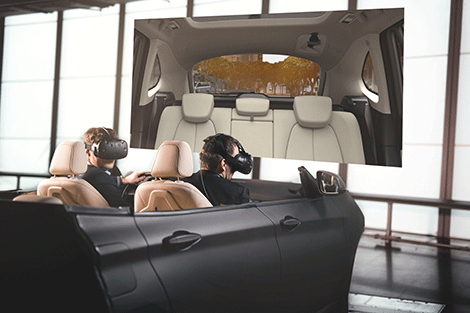
BMW is looking to improve the overall experience of its customers with the aid of VR during the design process
Fresh off the back of our feature on how McLaren is pioneering the use of ‘games engine’ VR technology for automotive design, BMW has stepped up to announce its own similar design evaluation set-up.
Using the same Unreal Engine technology as McLaren, areas such as interior designs, window sizing and vehicle functionality can be rapidly produced in VR to provide immersive visualisation, while physical mock-ups provide real world touch points – submerging the user in a convincing mixed reality.
This makes it possible to simulate drives through a city while testing what the all-round view of the surrounding area or whether a display is poorly legible or awkward to reach depending on the viewing angle or seat position.
Switchgear and surfaces of the driving environment can readily be assessed interactively for ergonomics as well as aesthetics and design quality, with the ability to switch options quickly using 3D printed and real car parts, while reviews can be collaborated on regardless of user location.
Simon Jones, Director of Unreal Engine Enterprise, explained the growing excitement surrounding the use of real-time VR in automotive design and engineering: “The arrival of relatively low cost, high fidelity VR has coincided with a rapid escalation in the need to do more with less and to do it faster.
“BMW’s new mixed reality system is a great example of what can be achieved with clever thinking.”






